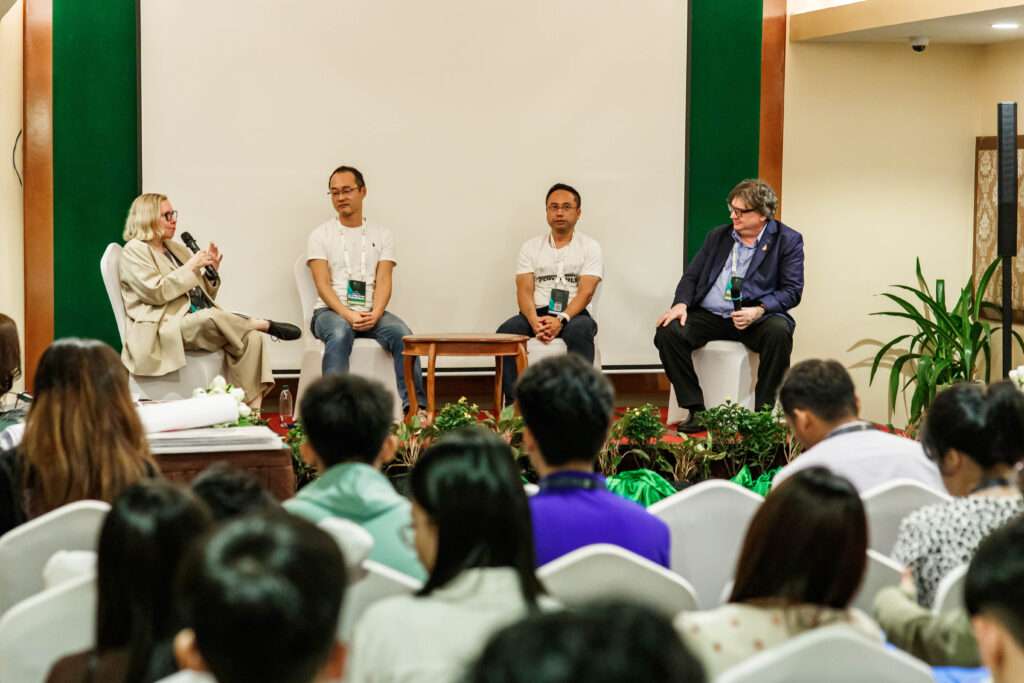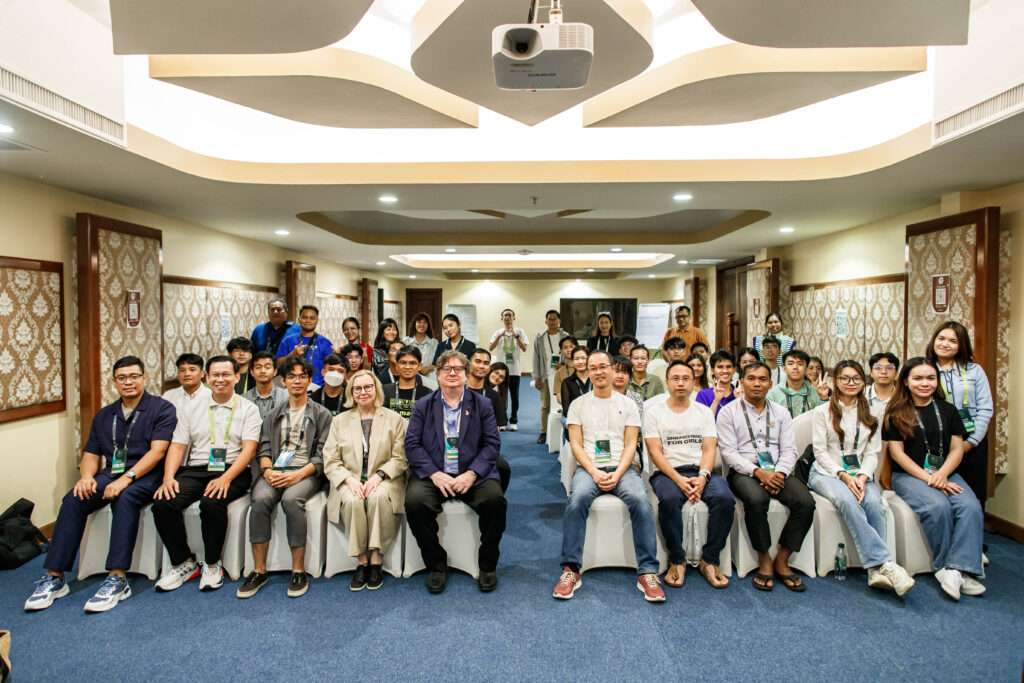Exploring AI regulation: Insights from a panel discussion at Cambodia ICT Camp 2024
The growing influence of AI on industries and societies raises critical questions about its regulation. This was one of the key points discussed during the Cambodia ICT Camp 2024 in Siem Reap province. The camp aimed to raise awareness about the opportunities and challenges of digital transformation in Cambodia, enhance digital literacy, promote dialogue on emerging technologies and ICT laws, and develop tech-driven solutions to address community challenges. As part of the camp, one of the key sessions held on the morning of 6 December 2024, titled “Understanding AI Regulation,” specifically addressed the complexities of AI regulation. The session featured a diverse panel of experts representing Mango Tango Asia, Technica Zen, and Fujitsu, alongside 40 participants, including 14 women, who explored the potential benefits, risks, and the importance of a collaborative approach to regulation.
The discussion underscored the importance of balancing the benefits and risks of AI. On the one hand, AI offers significant advantages, including improved productivity, efficiency, and innovation. For instance, AI has the potential to revolutionize education by aiding teachers in lesson planning, translating content into local languages, and enhancing student engagement. In disaster management, AI can predict climate-related events, allowing better resource allocation to support vulnerable communities. The panel also highlighted both technical and policy considerations, giving a comprehensive view of Cambodia’s digital transformation and its regulatory framework. From the private sector’s perspective, potential benefits include leveraging data for effective AI implementation, processing data to model development, and using AI to drive innovation and economic growth.
One participant shared his insight by reflecting the discussion:
“Businesses need tailored insights on how AI can directly enhance productivity, competitiveness, and efficiency in Cambodia’s unique market context,” highlighted Mr. IM Mengseang, Policy Advocacy Manager at AmCham Cambodia.
However, these benefits and opportunities come with challenges, such as bias in AI systems, misinformation, and ethical dilemmas related to the misuse of technology. Data privacy emerged as a critical focus area in the conversation. Protecting personal data while enabling innovation is a complex but essential task. Countries with robust data protection laws often require reciprocal measures for data sharing, which could pose challenges for Cambodia. Establishing clear guidelines and laws to protect personal data is necessary, but such measures must also consider how to facilitate responsible data sharing for innovation and growth.
Bias in AI systems was another pressing issue. The speakers emphasized the importance of transparency from AI service providers, including disclosing data sources and ensuring that algorithms are fair and inclusive. This is particularly crucial in Cambodia, where localized data and context-specific AI solutions are needed. Investment in creating datasets that reflect Cambodia’s unique societal, cultural, and economic realities can help address these challenges while ensuring AI systems deliver equitable outcomes.
To regulate AI effectively, a tailored approach is necessary. The speakers suggested adopting risk-based frameworks, similar to those implemented in countries like Japan and Korea, which categorize risks and prioritize safety while encouraging responsible innovation. Open-source tools and resources were also highlighted as vital for empowering smaller organizations and businesses to engage with AI responsibly. Public awareness and education campaigns can further help individuals and organizations understand both the benefits and risks of AI, fostering informed use. More importantly, a transparent and collaborative approach involving the government, private sector, and relevant stakeholders, including academia, is crucial for effective policy development. This multi-stakeholder engagement ensures a balanced perspective and safeguards public interests. Poorly designed or implemented regulations could lead to increased complexity, fewer restrictions, and hinder innovation.
Another participant added his perspective on the importance of regulation:
“Discussions on AI and digital technology regulation can significantly influence their adoption in the private sector. Effective regulation can build public trust in AI and innovative technologies, ensure fair competition, and promote responsible development,” stated Mr. SOEUN Vathanak, Founder of Sustainable Design 11 (SD11).
The panel discussion at the Cambodia ICT Camp highlighted opportunities and challenges of AI regulation, including global influences, local needs, ethical concerns, and data privacy. As Cambodia navigates this complex landscape, insights from experts will play a critical role in crafting policies that promote innovation while protecting societal interests. Based on the participants’ comments, future discussions should include real-world case studies, especially Cambodia’s digital adoption and the private sector, and direct engagement with government officials to discuss on regulatory frameworks and their commitment.



